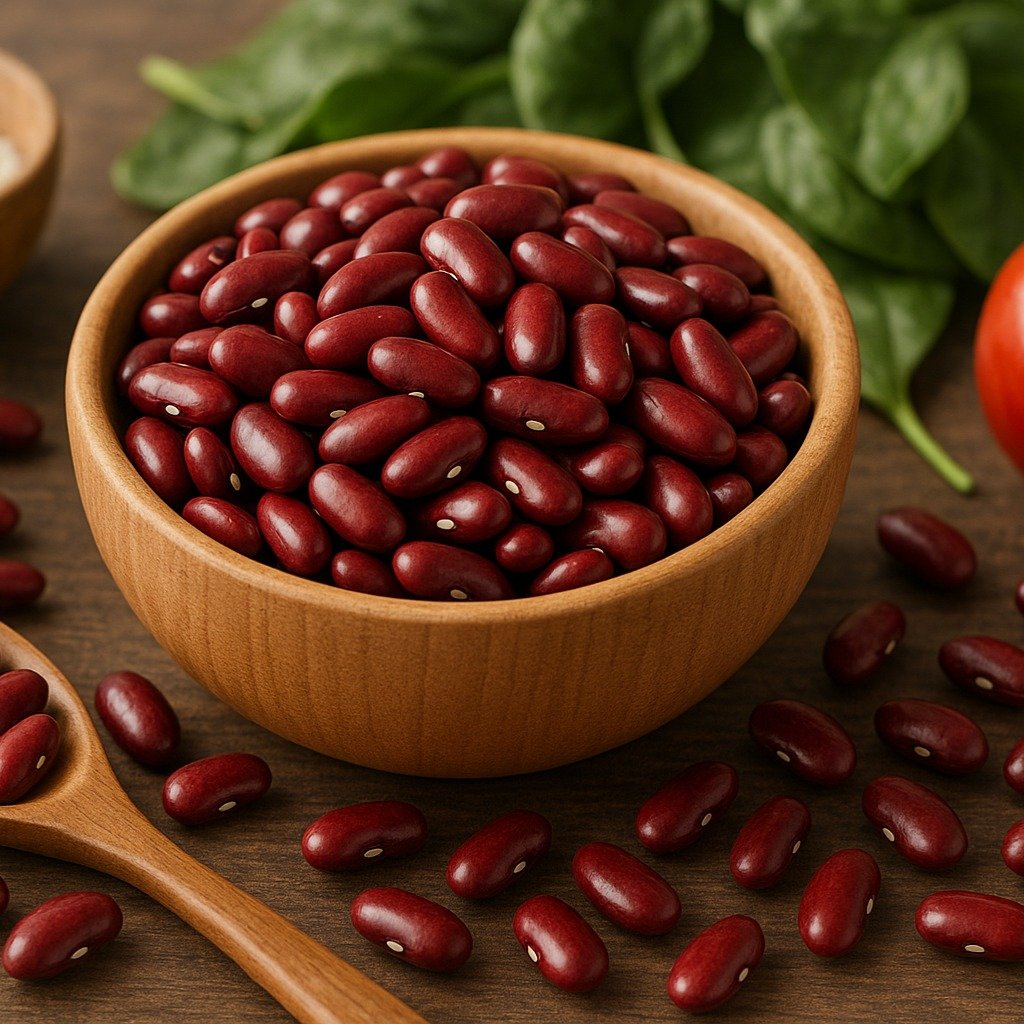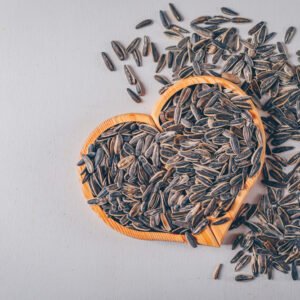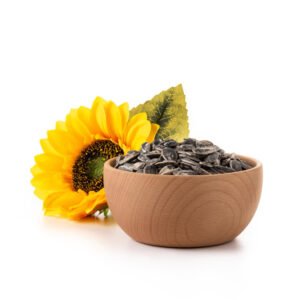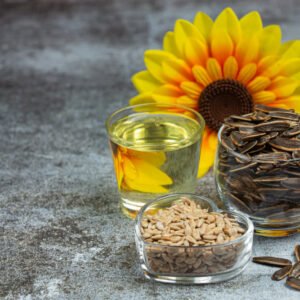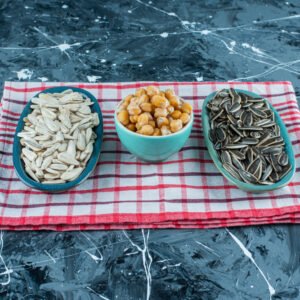Kidney beans, known as “राजमा” (Rajma) in Marathi, hold a special place in Indian kitchens across Maharashtra. These deep red, kidney-shaped legumes pack a nutritional punch that makes them a staple food for families seeking healthy, protein-rich meals. Whether you call them kidney beans or rajma, understanding their impressive health profile can help you make better dietary choices for your family.
What Makes Kidney Beans (Rajma) Special?
Rajma belongs to the common bean family and gets its name from its distinctive kidney shape. In Marathi households, these beans are traditionally prepared as a thick curry served with steamed rice, creating the beloved comfort food “राजमा भात” (Rajma Bhat). The combination provides complete protein, making it an excellent vegetarian alternative to meat-based dishes.
These versatile legumes contain impressive amounts of plant-based protein, fiber, and essential minerals. A 100-gram serving of cooked kidney beans provides approximately 127 calories, making them a nutrient-dense food choice for weight management and overall wellness.
Kidney Beans (Rajma) Health Benefits That Transform Your Well-being
1. Protein Powerhouse for Muscle Health
Kidney beans stand out as one of nature’s best plant-based protein sources. With nearly 8.7 grams of protein per 100-gram serving, they earn the nickname “poor man’s meat” in many Indian communities. This high protein content supports muscle building, tissue repair, and helps maintain steady energy levels throughout the day.
For vegetarians and vegans, rajma serves as an excellent protein source that rivals animal-based options. The complete amino acid profile, when combined with rice, creates a nutritionally balanced meal that supports healthy growth and development.
2. Heart Health and Cholesterol Management
Clinical research shows that regular kidney bean consumption can significantly reduce cardiovascular disease risk. The high fiber content and resistant starch in rajma work together to lower LDL (bad) cholesterol and total cholesterol levels in the blood.
These heart-protective compounds help prevent arterial plaque buildup, reducing the risk of heart attacks and strokes. The potassium content also helps regulate blood pressure, creating a comprehensive approach to cardiovascular wellness.
3. Blood Sugar Control for Diabetics
One of the most remarkable kidney beans (rajma) health benefits is their ability to stabilize blood glucose levels. These beans have a low glycemic index score, which means they release sugar into the bloodstream slowly and steadily.
This slow-release mechanism prevents dangerous blood sugar spikes after meals, making rajma an ideal food choice for people managing diabetes. The high fiber content further slows glucose absorption, providing sustained energy without metabolic stress.
4. Weight Management Support
The combination of protein and fiber in kidney beans creates a powerful appetite-suppressing effect. These nutrients work together to increase satiety, helping you feel full longer after meals. This natural appetite control can reduce overall calorie intake and support healthy weight management goals.
Studies show that people who eat beans regularly tend to consume less saturated fat while getting more essential nutrients. The complex carbohydrates provide lasting energy without the crash associated with simple sugars.
5. Digestive Health and Gut Wellness
Kidney beans contain approximately 6.4 grams of dietary fiber per 100-gram serving, promoting healthy digestion and regular bowel movements. This fiber acts as a prebiotic, feeding beneficial gut bacteria that support immune function and overall digestive health.
The resistant starch in rajma also contributes to colon health by producing short-chain fatty acids during fermentation. These compounds help maintain the intestinal lining and may reduce the risk of colorectal cancer.
Essential Nutrients Found in Rajma
Kidney beans provide an impressive array of vitamins and minerals that support overall health:
- Folate (Folic Acid): Critical for DNA synthesis and red blood cell formation, especially important during pregnancy to prevent neural tube defects.
- Iron: Supports oxygen transport throughout the body and helps prevent anemia, particularly beneficial for pregnant women and growing children.
- Magnesium: Supports bone health, muscle function, and helps regulate blood pressure.
- Potassium: Essential for heart health and proper muscle contraction.
- Vitamin B1 (Thiamine): Supports brain function, concentration, and memory formation.
- Antioxidants: Help protect cells from oxidative stress and may reduce cancer risk.
Smart Cooking Tips for Perfect Rajma Every Time
Pre-soaking: The Foundation of Great Rajma
Always soak kidney beans for at least 8-12 hours before cooking. This step reduces cooking time, improves digestibility, and helps remove compounds that can cause digestive discomfort. Change the soaking water 2-3 times for best results.
Proper Cooking Techniques
Never eat undercooked kidney beans, as they contain lectins that can cause food poisoning. Always boil soaked beans for at least 10 minutes at high heat, then simmer until tender. Pressure cooking for 15-20 minutes after soaking ensures safe consumption.
Here’s a simple cooking method:
- Rinse soaked beans and add to pressure cooker with fresh water
- Cook for 4-5 whistles on medium heat
- Allow natural pressure release before opening
Flavor Enhancement Tips
Toast whole spices like cumin, coriander, and bay leaves before grinding for deeper flavors. Use fresh ginger-garlic paste and quality tomatoes for authentic taste. Adding a pinch of asafoetida (hing) during cooking improves digestibility.
Storage and Meal Prep
Cooked rajma stays fresh in the refrigerator for 3-4 days and freezes well for up to 3 months. Prepare large batches and portion for quick weeknight meals. The flavors actually improve after resting overnight.
What is Lokwan Wheat and its Health benefits – it is a premium quality wheat rich in nutrients that supports digestion, boosts energy, and promotes overall wellness.
Traditional Marathi Rajma Recipes
Classic राजमा रस्सा (Rajma Rassa)
This traditional Marathi curry features tender kidney beans in a spiced tomato-onion gravy. The authentic preparation includes:
- Soaked and pressure-cooked rajma
- Fresh onion-tomato masala base
- Traditional spices: turmeric, red chili powder, garam masala
- Fresh coriander and curry leaves for garnish
राजमा उसळ (Rajma Usal)
A dry preparation where cooked kidney beans are tempered with mustard seeds, curry leaves, and coconut. This versatile dish works as a side dish or light meal with chapati.
How CMS Industries Supports Quality Agricultural Products
As a leading agricultural products manufacturer and supplier in India, CMS Industries understands the importance of high-quality pulses in maintaining healthy diets. With over 20 years of expertise in agricultural exports, CMS Industries has built a reputation for delivering premium-grade kidney beans and other pulses to both domestic and international markets.
The company’s commitment to quality begins at the farm level, working directly with farmers across India to ensure proper cultivation and harvesting practices. This farm-to-table approach guarantees that consumers receive the freshest, most nutritious kidney beans possible. CMS Industries’ state-of-the-art processing facilities maintain strict quality control standards, preserving the natural nutrients that make rajma such a valuable addition to healthy diets.
Located in Kachchh, Gujarat, CMS Industries serves as a bridge between Indian farmers and global markets, ensuring that traditional foods like kidney beans reach families worldwide while maintaining their nutritional integrity and authentic flavor profiles.
Side Effects and Precautions
While kidney beans offer numerous health benefits, some people may experience digestive discomfort when first adding them to their diet. Start with small portions and gradually increase intake to allow your digestive system to adapt.
People with kidney disorders should consult healthcare providers before significantly increasing bean consumption due to their potassium content. Those taking blood-thinning medications should also seek medical advice, as vitamin K in beans may affect medication effectiveness.
Proper cooking eliminates most concerns, but never eat raw or undercooked kidney beans. The lectins present in raw beans can cause severe digestive upset and food poisoning symptoms.
Incorporating Rajma into Modern Diets
Modern nutrition science confirms what traditional Indian cooking has known for centuries: kidney beans provide exceptional nutritional value. Today’s health-conscious consumers can enjoy rajma in various forms beyond traditional curries.
Try adding cooked kidney beans to salads for extra protein and fiber. Blend them into healthy dips and spreads. Use them in soups and stews for heartier meals. The versatility of rajma makes it easy to include these nutritional powerhouses in contemporary meal planning.
For busy families, keeping cooked rajma ready in the freezer ensures quick access to nutritious meals. Combine with quinoa or brown rice for complete protein profiles that support active lifestyles.
Making Rajma Part of Your Healthy Lifestyle
The journey toward better health often starts with simple food choices. Adding kidney beans to your regular meal rotation provides sustained energy, supports heart health, and contributes to overall wellness goals. The key lies in consistent consumption and proper preparation techniques.
Start by planning one rajma-based meal per week, then gradually increase frequency as your family develops a taste for these nutritious beans. Experiment with different spice combinations and cooking methods to keep meals interesting and flavorful.
Remember that the best nutrition comes from variety. While kidney beans offer impressive health benefits, they work best as part of a balanced diet that includes plenty of vegetables, fruits, whole grains, and other legumes.
Ready to experience the incredible kidney beans (rajma) health benefits for yourself? Connect with CMS Industries to source premium-quality kidney beans and other nutritious pulses that support your family’s wellness journey. Visit our website or contact our team to learn more about our range of agricultural products designed to nourish communities worldwide.
Frequently Asked Questions (FAQs)
Q1: How long should I soak kidney beans before cooking?
Soak kidney beans for 8-12 hours or overnight in plenty of water. This softens them, reduces cooking time, and improves digestibility. Change the water 2-3 times during soaking for best results.
Q2: Can diabetics safely eat rajma regularly?
Yes, kidney beans are excellent for diabetics due to their low glycemic index and high fiber content. They help stabilize blood sugar levels when eaten as part of balanced meals with appropriate portion control.
Q3: What happens if I eat undercooked kidney beans?
Undercooked kidney beans contain harmful lectins that cause nausea, vomiting, and digestive distress. Always boil soaked beans vigorously for at least 10 minutes, then simmer until completely tender before eating.
Q4: How much protein do kidney beans provide compared to meat?
Kidney beans provide about 8.7 grams of protein per 100 grams, while chicken breast contains approximately 23 grams. However, beans offer additional benefits like fiber, complex carbohydrates, and essential minerals that meat lacks.
Q5: Can I freeze cooked rajma for later use?
Absolutely! Cooked kidney beans freeze well for up to 3 months. Store in airtight containers or freezer bags, leaving space for expansion. Thaw overnight in the refrigerator before reheating and using in recipes.

